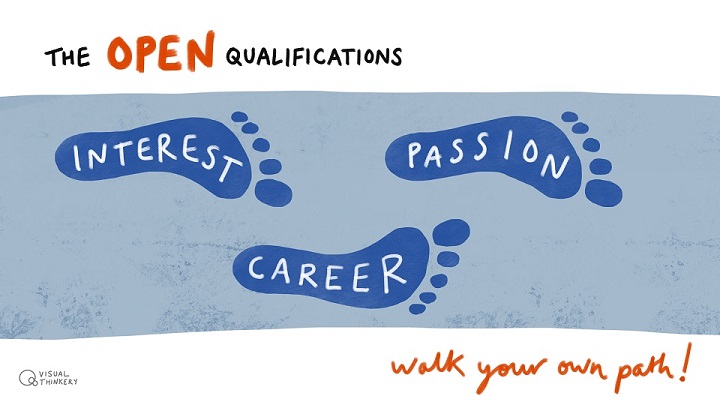
Andrew Webster is the Curriculum Manager for the Open Programme team. Here he shares his reflections on the Student Hub Live session, ‘Different Perspectives: Exploring the big questions from different points of view’.
The remote broadcast from Student Hub Live offered an opportunity for several Open Programme colleagues to discuss what they’ve learnt over the last year or so because of the Covid-19 restrictions, and why we need to look at the big issues from a variety of viewpoints to solve them. The topics covered were:
- The environment
- Food security and sustainability
- Health and technology
- Arts and wellbeing
Before the session, I considered some of the big questions faced both nationally and globally over the last year and the contrasting points of views from the media, since the Covid-19 pandemic hit the UK and the rest of the world.
These included:
- Removal of free school lunches
- Continuing sport behind closed doors
- The strain on the NHS
- Working remotely and home schooling
- Restrictions on travel
- Restrictions on leaving your home and meeting family and friends
- Closing of non-essential shops, pubs, theatres, etc.
These are just a few of the impacts of the Covid-19 pandemic that stand-out for me and probably had the biggest effect on my family and friends. On these topics we’ve heard from parents to school teachers, professional athletes to club owners, NHS managers to frontline medical staff, business owners to employees and politicians to medical experts. All providing differing points of view to take into consideration, making decisions more complicated to ensure they benefit everyone.
That’s enough of my own experience, let me tell you now what was discussed at this interesting and thought-provoking session on the four main discussion topics.
Why not watch the session via the YouTube catch-up option
The Environment
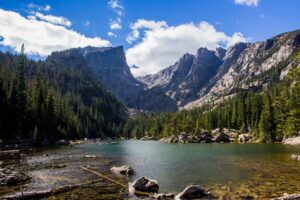 It was suggested that significant changes have taken place during lockdown due to the restrictions in movement of people, reduction in travel, reduction in air pollution and people shopping locally. These are a few of the positive outcomes observed by many, however we also need to think about the negative impacts. An increase in online shopping has increased the need for packaging, subsequently leading to an increase in household waste and recycling. Whilst many people have signed up to and benefitted from online streaming services, there are hidden energy costs related to this which many people don’t consider. Check out the recording for a great fact from George Curry about the energy required to stream a film or 30-minute episode of a boxset.
It was suggested that significant changes have taken place during lockdown due to the restrictions in movement of people, reduction in travel, reduction in air pollution and people shopping locally. These are a few of the positive outcomes observed by many, however we also need to think about the negative impacts. An increase in online shopping has increased the need for packaging, subsequently leading to an increase in household waste and recycling. Whilst many people have signed up to and benefitted from online streaming services, there are hidden energy costs related to this which many people don’t consider. Check out the recording for a great fact from George Curry about the energy required to stream a film or 30-minute episode of a boxset.
Food security and sustainability
Discussions took place around whether the pandemic has changed the way we eat. It was suggested that this could be looked at from two perspectives, those who do not have enough to eat and those who do. This is often looked at from a viewpoint of people who have a lack of food and the subsequent issues associated with malnutrition. However, we cannot ignore that too much choice and availability of food has led to an obesity problem, particularly in the Western world. An increase in anxiety and mental health problems caused by the restrictions of the pandemic have more than likely impacted on peoples eating habits. Food waste appears to have reduced as many people have begun growing their own vegetables, but is this sustainable?
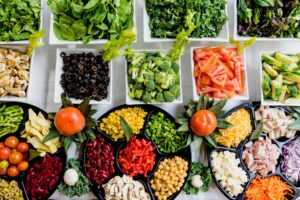
Health and technology
This discussion looked at how and what we use to measure and monitor our health today. One of the positives from the lockdown restrictions is that an increased number of people have taken up outdoor exercise, running and walking being the most popular. The popularity of wearable devices has increased and the sharing of data online and with family and friends has become an important part of everyday life. For some this have become an obsession and resulted in judging others based on their own performance. At a time when there is already an unhealthy obsession with social media, this is unwelcome in some quarters. Technological advances made by some educational institutions such as exam proctoring, has led to some feeling uncomfortable with being monitored in their own homes. The sense of isolation for some has been lessened through technology and the ability to connect with friends and family via online services such as Skype and Zoom.
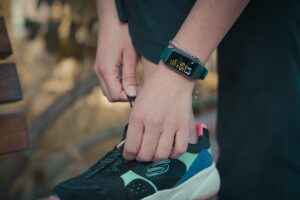
Arts and wellbeing
The question that was posed here was has the perception of arts changed since the pandemic? Live performances have moved online, increasing accessibility, but this has had massive financial impacts on theatres and other arts venues. Free online streaming does not appear to be a viable option for the arts when restrictions are lifted. It has led to the loss of atmosphere and enhanced experience that is felt by all when attending a ‘live’ event with hundreds of other people under the same roof. Funding is being made available, however there are concerns that this will be apportioned to the largest and well-known establishments. Lesser known, independent establishments will therefore continue to struggle to keep their heads above water. Lockdown has allowed individuals to discover their creative, artistic side and seen an increase in people taking up crafting, even opening new businesses.
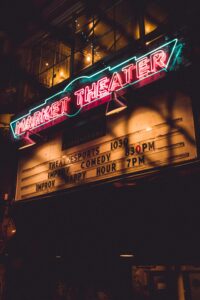
The big question throughout the session was when lockdown restrictions are lifted, will people continue with the habits they have learnt, or will we go back to the way we were? I can vouch for myself that I have already started slipping back into some of my old ways, just because they seem easier. It will be interesting to see how the world looks in another 12 months once restrictions have been completely lifted and we have had time to re-adjust to a ‘normal’ life.
More information on the themes explored in this session can be found via the following links on OpenLearn.
Environment
- Climate change (Badged Open Course, 18 hours, level 2)
- Climate change collection (collection of courses/links)
- Comparing COVI-19 with our climate emergency -(Article)
- Greta Thunberg: A Year to Change the World (OU with the BBC)
- Earth Day 2021 (Article)
Food security and sustainability
- Eating the environment (8 hours, level 2)
- How are Ethiopian coffee growers responding to climate change? (article)
- Could we control our climate? (Badged Open Course, 24 hours, level 1)
- The science of nutrition and healthy eating (BOC, 24 hours, level 1)
Health and technology
- The impact of technology on children’s physical activity (6 hours, level 1)
- Smarty pants: wearable electronics will recharge your life (article)
- What do we mean by digital health and social care? (4 hours study, level 1)
- Digital innovation in social care and social work (4 hours study, level 1)
Arts and wellbeing
- Art and visual culture: Medieval to modern (8 hours, level 2)
- Who are we? A project about art, migration, politics and identity (article)
- Glastonbury and the festival (video, 10 mins)
- Celebrating festivals from the past and present (video, 10 mins)
- Journeying through wellbeing (Activity)
